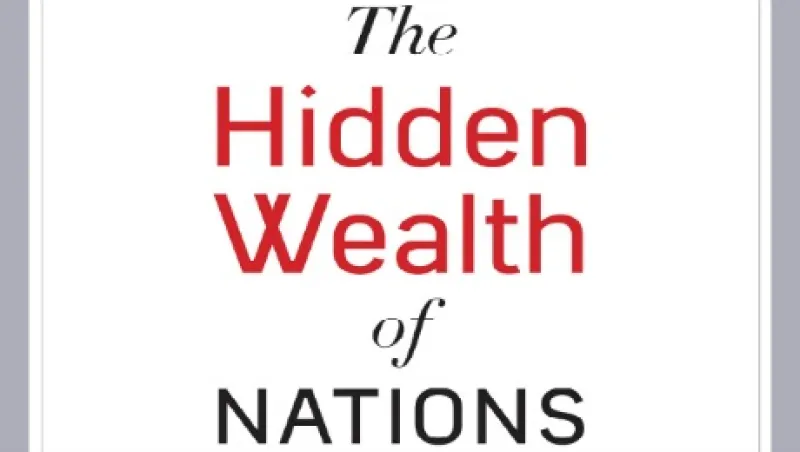Offshore tax havens are a phenomenon people love to hate, then do nothing much about. In 2009 the G-20 collectively declared the “end of banking secrecy” after a summit meeting on the subject. Those officials were wrong. Since then, assets hidden by individuals in Swiss banks and other bolt-holes have actually swelled by 25 percent, to $7.6 trillion, according to Gabriel Zucman, author of The Hidden Wealth of Nations: The Scourge of Tax Havens, the most readable brief on the subject any qualified economist is likely to produce.
Zucman, a French academic at the University of California, Berkeley, parses the history — which started in earnest when European nations hiked tax rates after World War I — and anatomy of offshore finance in a fast-moving 200-odd pages, which includes an inevitable foreword from that dean of modern inequality studies, Thomas Piketty. Zucman debunks the notion that Zurich or Grand Cayman is populated by evil financial and legal geniuses weaving webs too intricate for bumbling authorities to comprehend. Rather, he claims, individual tax evasion is centered on the straightforward machinations of what he calls a “sinister trio”: Switzerland, still the clear leader; the British Virgin Islands, nominal home to a universe of trusts and shell companies with unidentified beneficiaries; and Luxembourg, domicile of the tax-free mutual funds to which much hidden wealth is channeled.
This assertion is clear and incisive. But Zucman starts to stack the deck statistically while laboring to prove the opening sentence of his treatise: “Tax havens are at the heart of financial, budgetary and democratic crises.” Are they really? His headline number for secreted funds is impressive, amounting to 8 percent of what he terms “households’ financial wealth” worldwide. But reading between the lines, this figure excludes real estate, the principal asset of the average household.
More to the point, Zucman estimates the taxes lost on offshore deposits at 1 percent of governments’ global take, or some $200 billion. That may be unfair to the rest of us who work hard and play by the rules. But 1 percent doesn’t sound like enough to constitute the heart of budgetary, let alone democratic, crises. The tax-avoiding informal economy — all those plumbers and others taking cash off the books — looks at least as potent a threat, estimated at 8 percent of gross domestic product in the U.S., one of the world’s more law-abiding nations. Somehow, the Republic still stands.
Zucman explains, sort of, why the tax avoided by fat cats going offshore is disproportionately low: Most of the assets in question are deployed in financial markets and would owe only capital gains levies. The possible benefits to the world economy of this $7.6 trillion in presumably stable long-term investment funds are not a point he considers. The state’s access to its citizens’ wealth is posited as an absolute good.
That principle looks particularly strained in the case of developing nations whose nouveaux riches are the growth drivers of the offshore zones, set to overtake Europe in terms of cash stashed away. Businesspeople in Russia or Nigeria have good reasons to protect their wealth from arbitrary seizure by corrupt officialdom. The plundering of his wealth and the ten-year sentence of Russian oil billionaire Mikhail Khodorkovsky are just one example. One might argue that private enterprise in such countries could hardly develop without offshore finance. This, too, is of no concern to Zucman, who focuses almost exclusively on Europe.
Zucman’s own plan for wiping out tax havens, which he calls simple and effective, seems anything but. First, Zucman suggests that some state-sponsored body like the International Monetary Fund should take over all the world’s private securities depositories — the U.S.’s Depository Trust Co., Europe’s Euroclear and Clearstream — a step that would supposedly make hiding ownership of stocks and bonds impossible. Next, the author recommends that Switzerland’s European neighbors should curb its behavior with punitive tariffs of 30 percent on Swiss goods.
Aside from European leaders having more than enough problems without such a trade war, the solution fails to address how real owner identities are to be wrested from all the world’s offshore trusts and shell corporations. Zucman himself throws in the minor detail that one of his sinister trio, Luxembourg, is actually a European Union member, which cannot legally be blockaded or expelled.
In the real world, Europe could probably diminish tax avoidance by moving in the direction of the U.S., which combines lower capital gains levies — 15 percent against more than 30 percent in France and Germany — with more toothsome enforcement through the Foreign Account Tax Compliance Act. Americans hide 4 percent of their liquid wealth offshore, compared with 10 percent for EU residents, Zucman calculates. But bridging the gap with incremental measures does not seem to interest him.
Zucman finds firmer ground in a short final chapter on corporate use of tax havens — a sinister sextet that again includes Switzerland and Luxembourg and adds Bermuda, Ireland, the Netherlands and Singapore. He shifts focus here to the U.S., whose firms manage to credit nearly one fifth of their global profits to these revenue resorts, depriving Uncle Sam of some $130 billion annually, or 3.4 percent of the federal budget, Zucman calculates.
Individual tax avoiders are many and obscure, but their corporate counterparts are relatively few and well known. The most aggressive users of offshore profit centers are marquee names of high technology such as Apple, Google/Alphabet and Microsoft Corp.. That’s because they have the most impenetrable tax dodge: internal transfers of intellectual property that can be “sold” at any price they concoct by a Bermuda subsidiary to an operating unit in California or London.
Zucman’s antidote to this flimflammery actually does sound simple and practicable, at least for public corporations: apportion profits on where they really do business, based on revenue, investment, employees — or some mixture of the three. A similar system has long been employed by U.S. states to get their fair cut of corporate tax, or so Zucman says.
Although a faceless German heiress or Russian suboligarch has little concern for public image, the lords of Silicon Valley don’t have such luxury. An idealistic campus-driven boycott of the iPhone might curb Apple’s practices in a hurry and make the titans of industry happy to embrace something like Zucman’s global taxation formula.
Get more on regulation.






